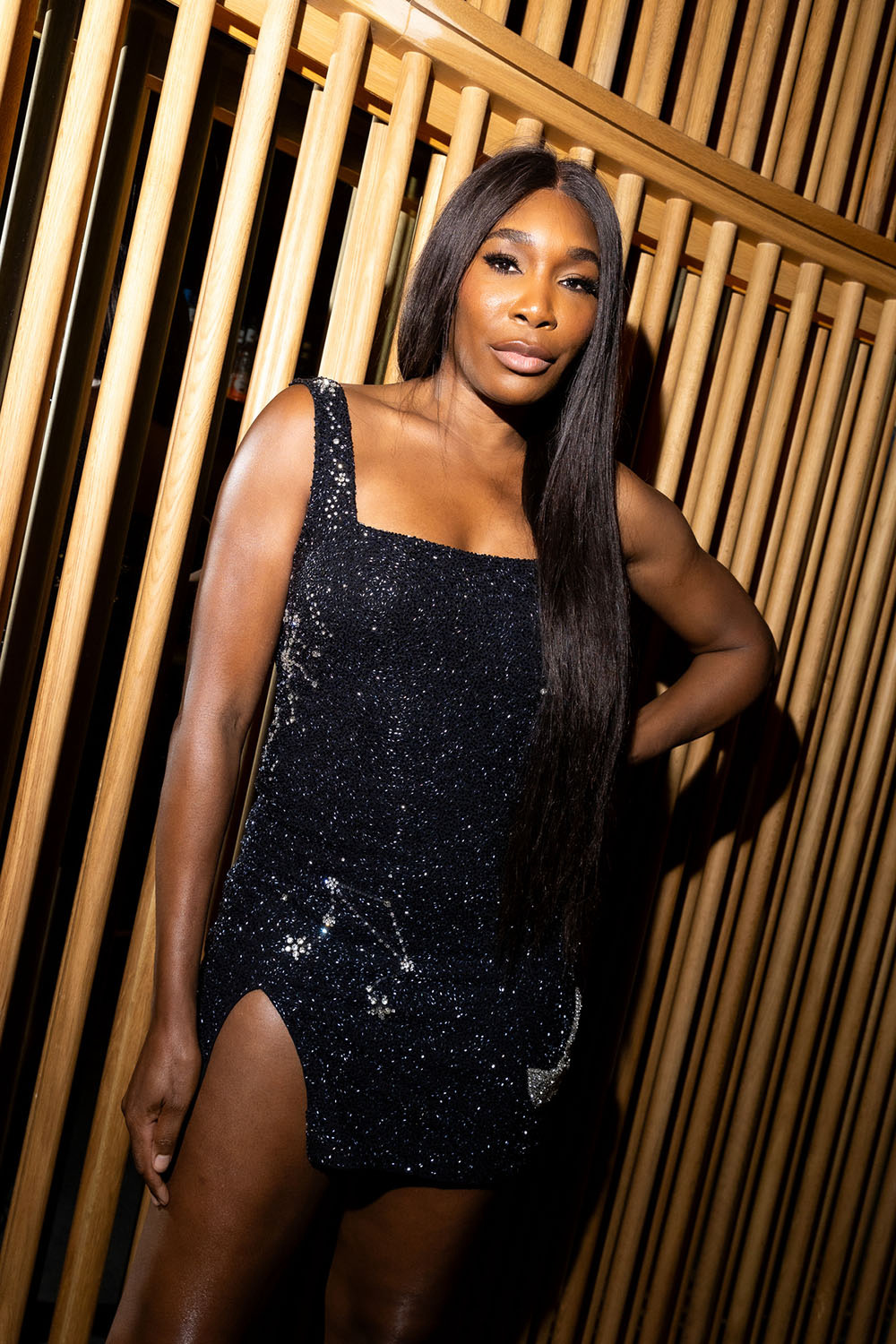
There are many words one might use to describe tennis royalty Venus Williams—relentless, agile, record-breaking—and “shy” doesn’t seem to fit the list. But when CULTURED caught up with the collector at Cote’s Miami outpost during the city’s Art Week, she revealed the one thing stopping her from arranging studio visits with artists: a fear of knocking over paints and brushes, or otherwise getting in the way.
On the court, the athlete is a master of her craft. In the art world, she’s enjoyed every step of learning the game. Wednesday night, at a dinner co-hosted with Pace Gallery, she welcomed guests fresh from the fair or just touching down in Florida to celebrate the bustle of Miami Art Week. The event followed another collaboration earlier this year between Williams and the gallery: a gala and auction supporting the preservation of Nina Simone’s childhood home.
At Cote, the athlete welcomed guests including her sister, Serena Williams; tennis player and art collector Reilly Opelka; artist Hank Willis Thomas; Ghetto Gastro’s Jon Gray; the Whitney Museum’s Scott Rothkopf; and collector Pamela Joyner. In the midst of the thrum, Williams sat down with CULTURED Editor-in-Chief Sarah Harrelson to explain how she first entered the art world, how she curates her growing collection, and why she thinks it’s time her sister hires her as an art advisor.
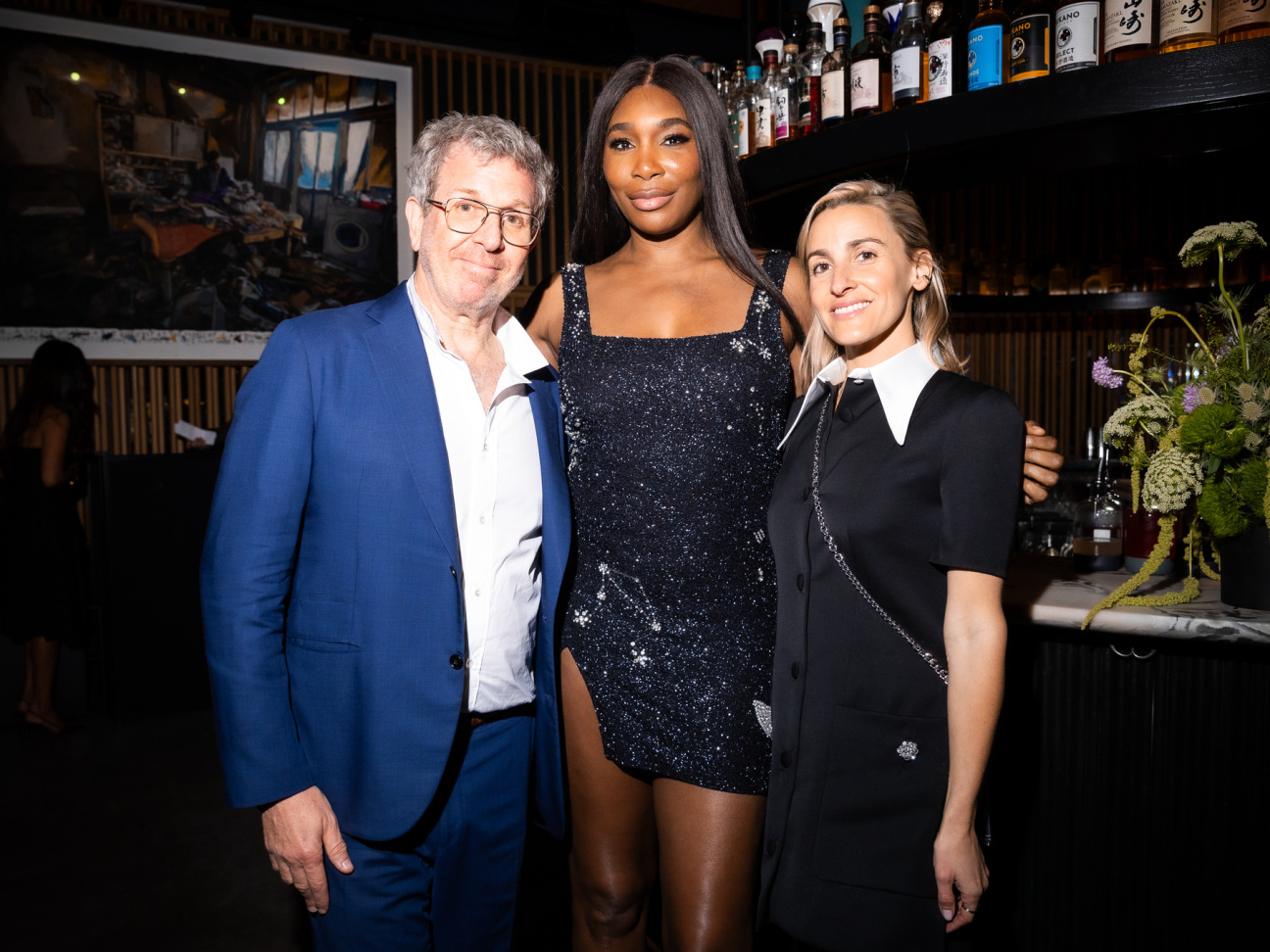
Sarah Harrelson: Tell me how you first got introduced to the art world.
Venus Williams: I got a letter in the mail, and it said, “Go to design school.” I was about 18. It was addressed to me from a school in Florida. I think they were just trying to find students, and I was on that list. I was like, Oh my god, I want to go to design school. I always loved design, but it was always subconscious. I had already gone pro for a couple of years. I started fashion school and then for the actual paintings and works of art… One day I just decided that I wanted to acquire and live with work. So I asked a friend of mine, “How do I start?” That’s maybe like my late 20s at that point. There’s nothing like living with a piece; it brings so much joy.
Harrelson: I know you’re a little private about it, but you have amassed an incredible collection. It sounds like you’ve spent a lot of your own time invested in it.
Williams: In the beginning, I just bought what I loved. I didn't know a thing. A lot of it happened organically, and it wasn't until years later that I started to realize that these were incredible, amazing, and important artists at times. Along the same token, too, there are things you don't acquire because—I like to call it “tennis ball fuzz;” I was playing tournaments and matches, so I just forgot to do it. It was just a few months ago that I finally got over it because then you go, and you walk the art fairs and you're like, “I had a chance left, right, and center. Whoa, I'm so depressed because of the things that I could have done.” But now I'm fine. For me, buying art is very emotional. Actually, I'm done for this year because I expended a lot of emotion. I'm like, “Show me no more art. My emotions can't handle it anymore.” I'm gonna start again in 2024, which is basically in a few days.
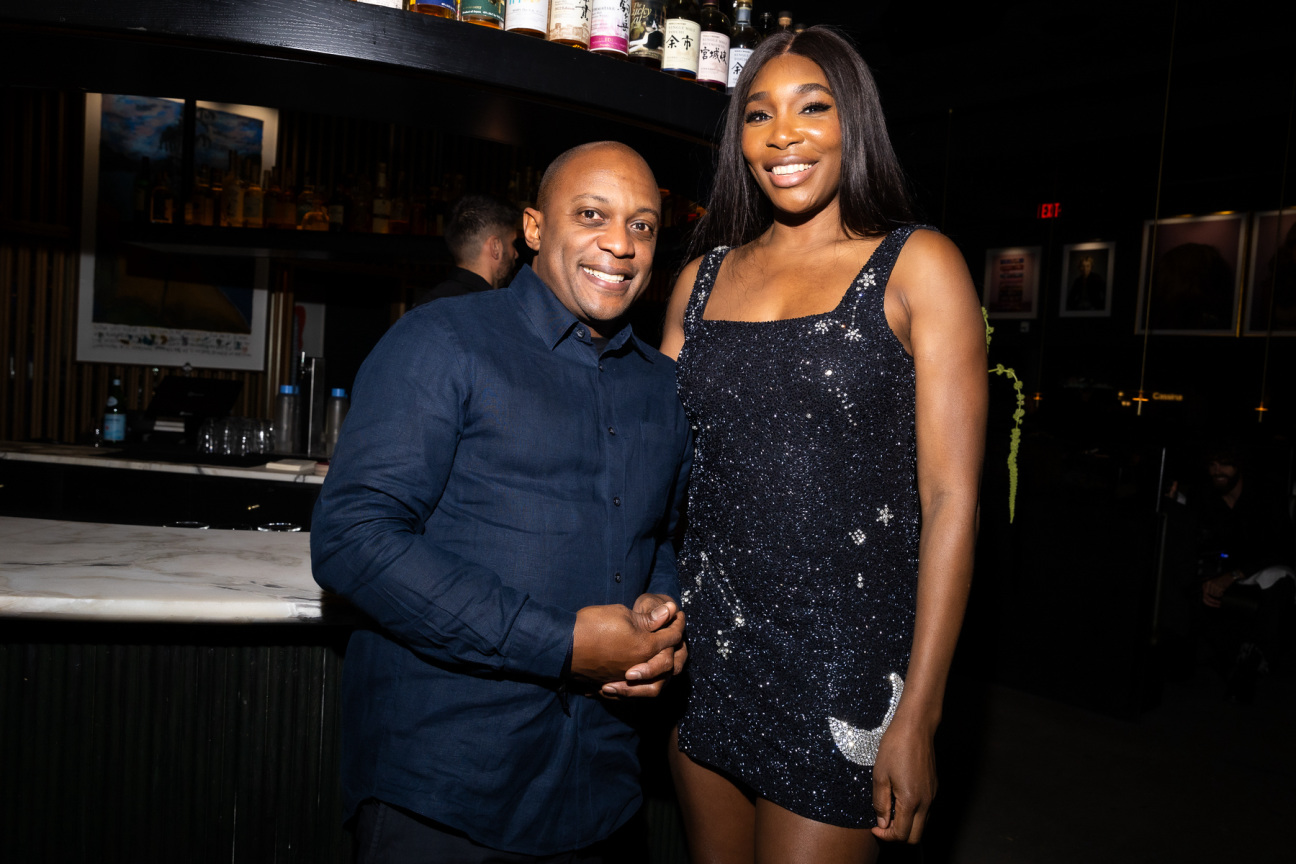
Harrelson: Do you focus primarily on painting? What’s the breadth of your collection?
Williams: Painting, sculpture… I don't know as much about photography, but I'm diving into that now. I'm my own advisor, so I have to do my own research. That takes time—not only on the day that you're buying, but also long before. I'm constantly reading.
Harrelson: Where do you do your research?
Williams: I read books, I read articles, and I watch auctions.
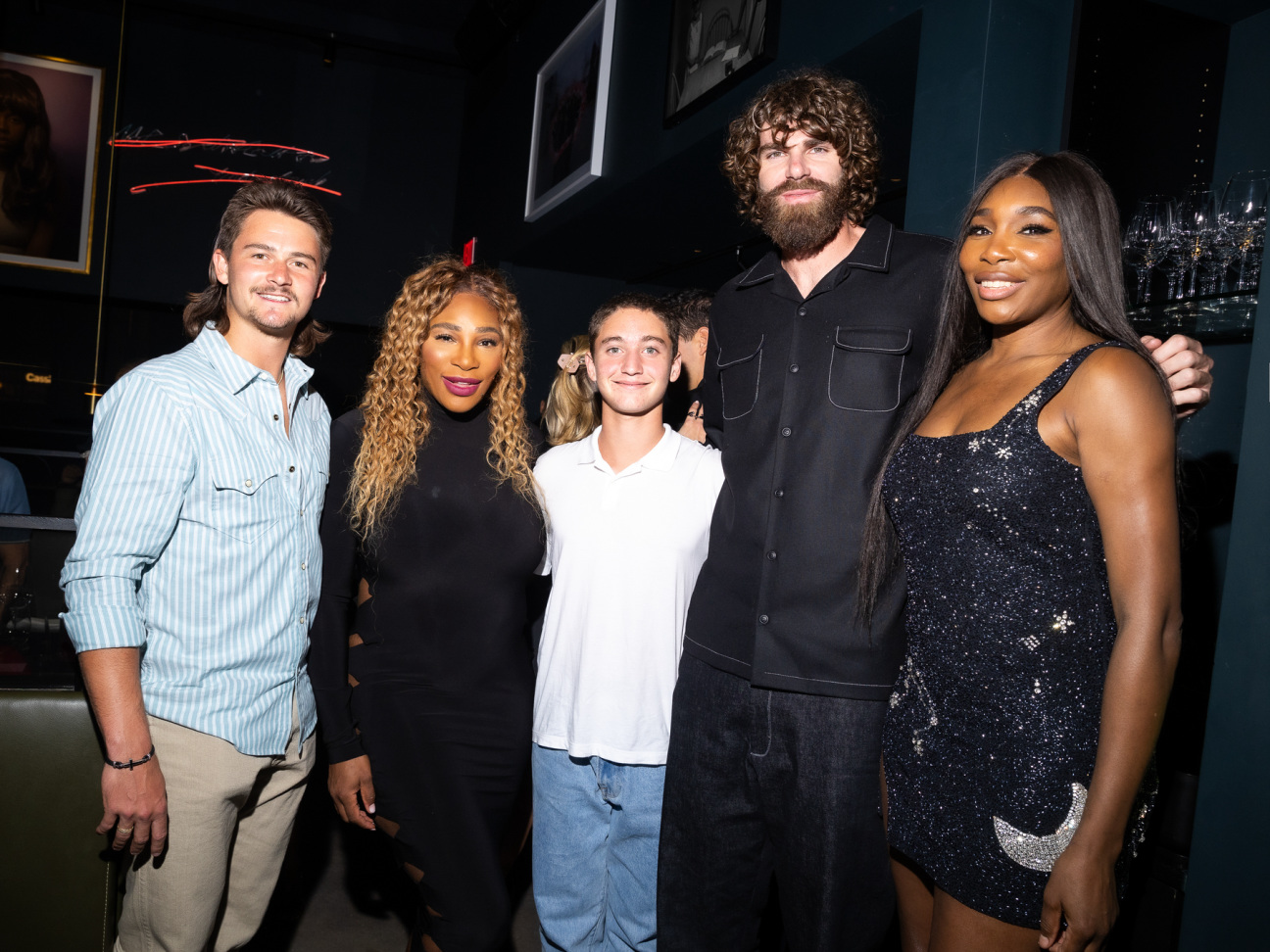
Harrelson: That helps a lot.
Williams: It helps a lot, and it’s fun to watch! It’s just a great experience. I tried to buy something at an auction this year. I was so nervous I almost jumped out of my skin. Is there a win or lose in this sort of thing? I didn’t come out with the piece, but as an athlete I’m always thinking I lost or won; everything is very definite. It was a great experience in general. That’s pretty much what I do, how I learn, and also community is really important. I talk to Reilly [Opelka] a lot of the time. We talk almost every day about art.
Harrelson: Is there a lens you’re trying to collect through?
Williams: For me, it's about the love. If I won't be happy living with it, then I don't believe in it. It's about sticking true to who you are. Some people buy certain groups of work. I just go by love. I buy that way because that's how I started. I never want to lose that. It doesn’t matter if your works appreciate or not; if you love it, you’re happy living with it, and that’s what it’s about.
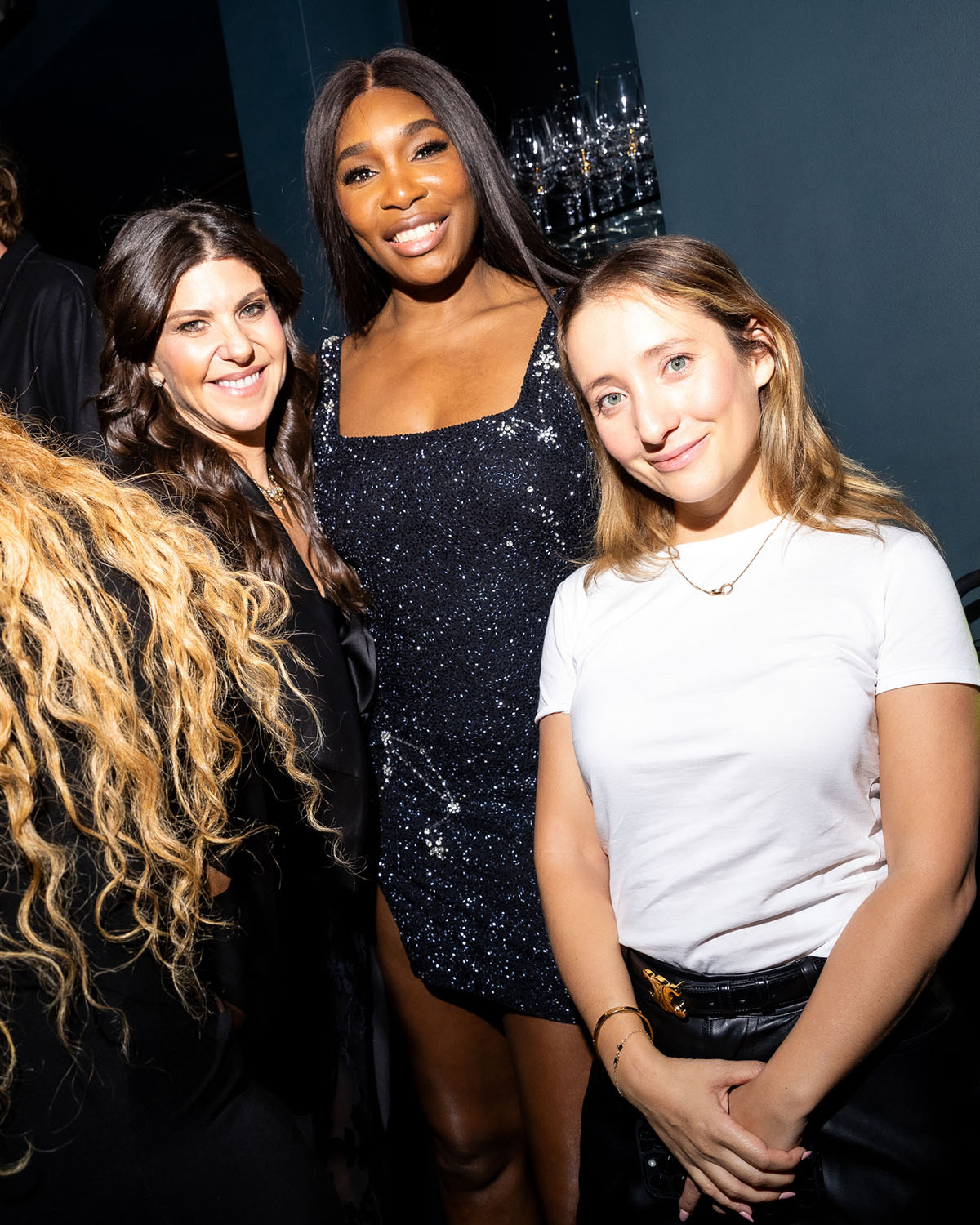
Harrelson: And you’ve got your sister collecting too, I heard.
Williams: We’re starting. She sent me some information, and I was overseas working. So then I just stayed up all night doing her research, and I was like, “This is who I recommend.” She ended up getting this amazing artist that I should have gotten too. But I was so busy thinking about her that I forgot to do it myself. So now I'm asking, “Is there one available yet? Is there one available yet?” I just want to live with the work. Hopefully, she will hire me as her advisor. You know, I don't take any pay. It’s all just a great learning experience.
Harrelson: Do you have any favorite artists right now?
Williams: Oh my gosh, who is my favorite right now? I got obsessed with Piet Mondrian earlier this year, and then Barkley L. Hendricks.
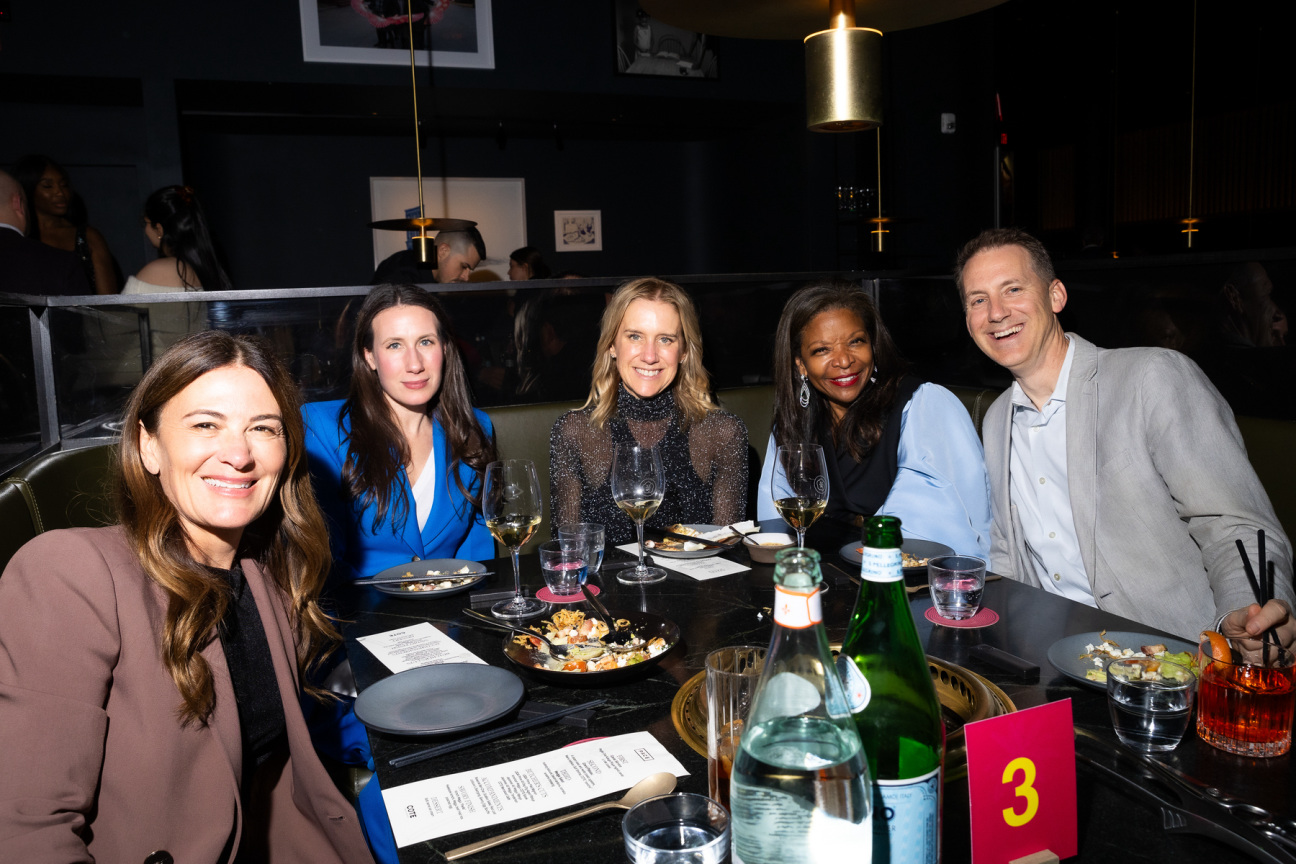
Harrelson: And since we’re obviously here tonight at the Pace dinner, I want to talk a little about your relationship with Pace.
Williams: Pace has a great heritage, and it’s great to be a part of that. I felt like my whole life led up to being asked to be a part of the preservation of Nina Simone's house with Adam Pendleton. I had never met him. I actually interviewed him once and finally we met. We just hugged, and people were like, “What are you guys doing?” We love each other. At least I love him, and I think he loves me. It's kind of interesting how you can feel that love for someone like that, right? I felt like, Wow, everything I did on the court gave me this opportunity to be here tonight. I was there; I moved mountains to make sure I was at that event. Through that, I got to know Marc [Glimcher], and we have a great relationship. I love his perspective on art and life. I’m just very happy to be involved. Who knows where I’m going next, but it will always be pure love.
Harrelson: Do you meet all the artists you collect?
Williams: When I have a chance. It’s not easy, but I’m working on that. I think meeting the artist is so transformative. If you have that chance, why not take it? I just feel like I don't want to be in your space. I don't wanna be in your way, “I'm so sorry, I knocked over a bottle of brushes or paint.” I don't wanna do that.
Harrelson: I’m sure any artist would love to have you in their space.
Williams: My true love really is always young and emerging artists. I just love it. It's so exciting. My other favorite thing is seeing artists evolve. Whenever I see a young artist or mid-career artist, I'm always thinking, I wonder if they'll evolve and I wonder what they'll do next. I love seeing the evolution but also being a part of the evolution. When you collect the works, you feel like you're a part of it. You've never lifted a brush, but you just feel like you're a part of their journey.

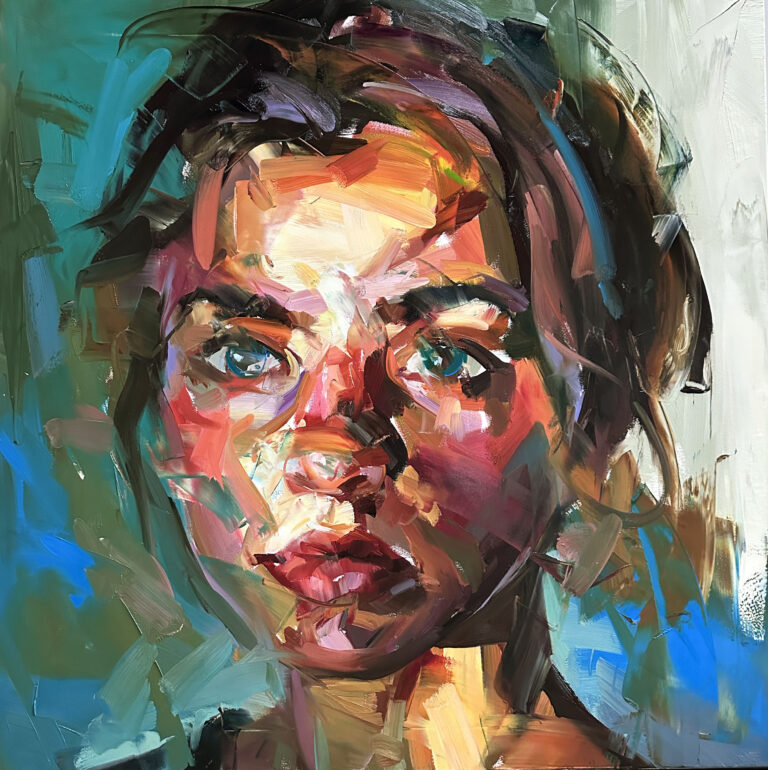
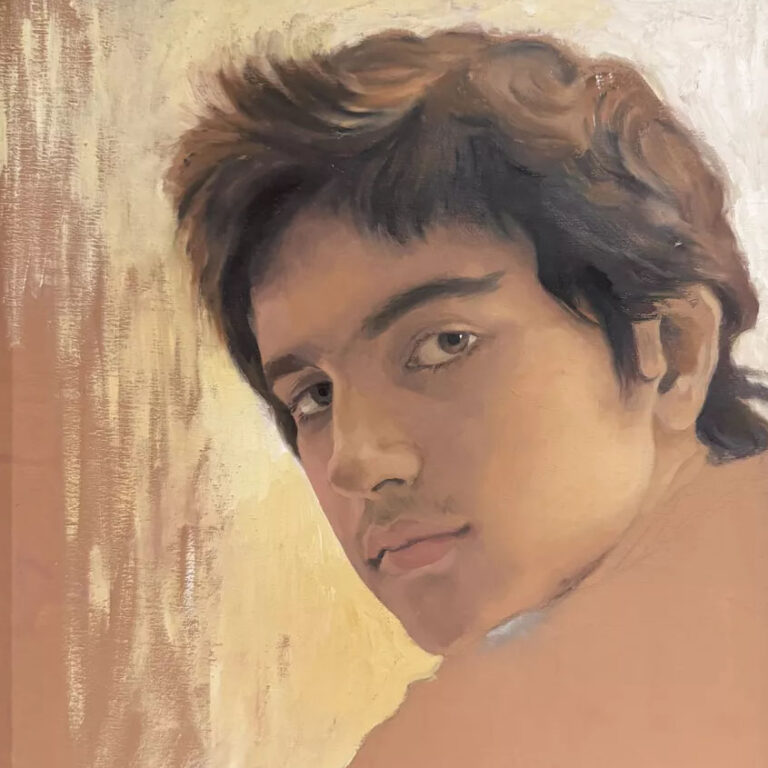
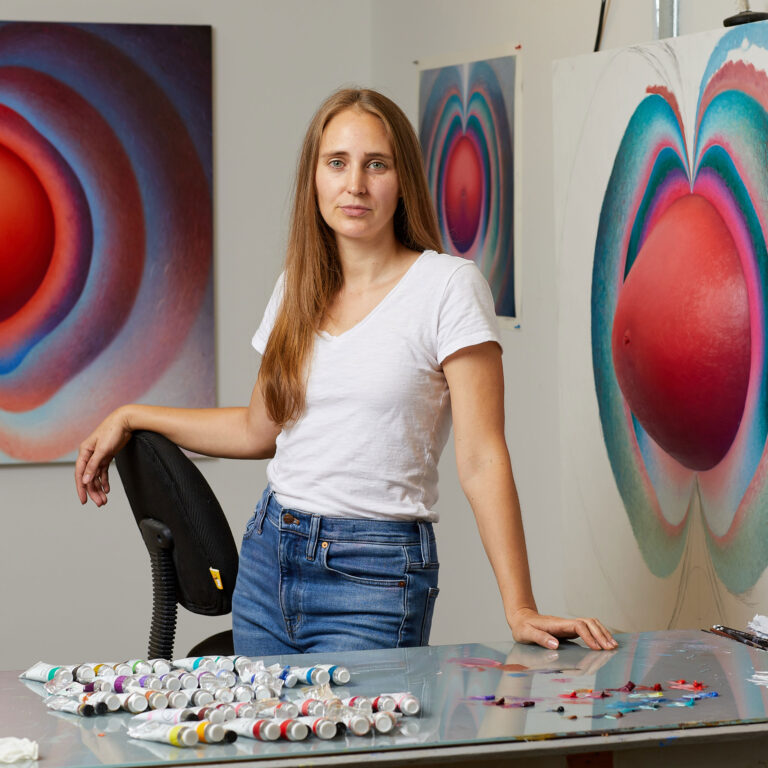
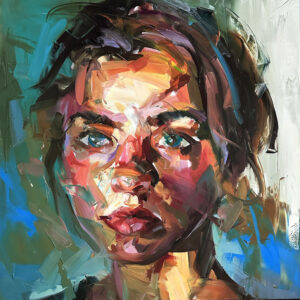
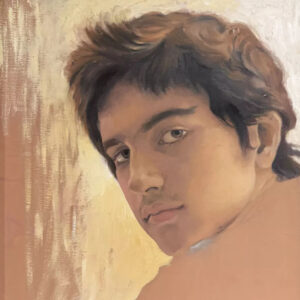
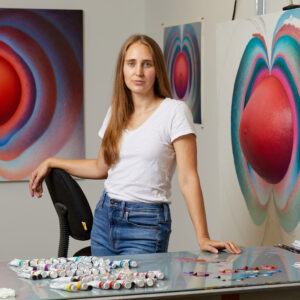



 in your life?
in your life?

